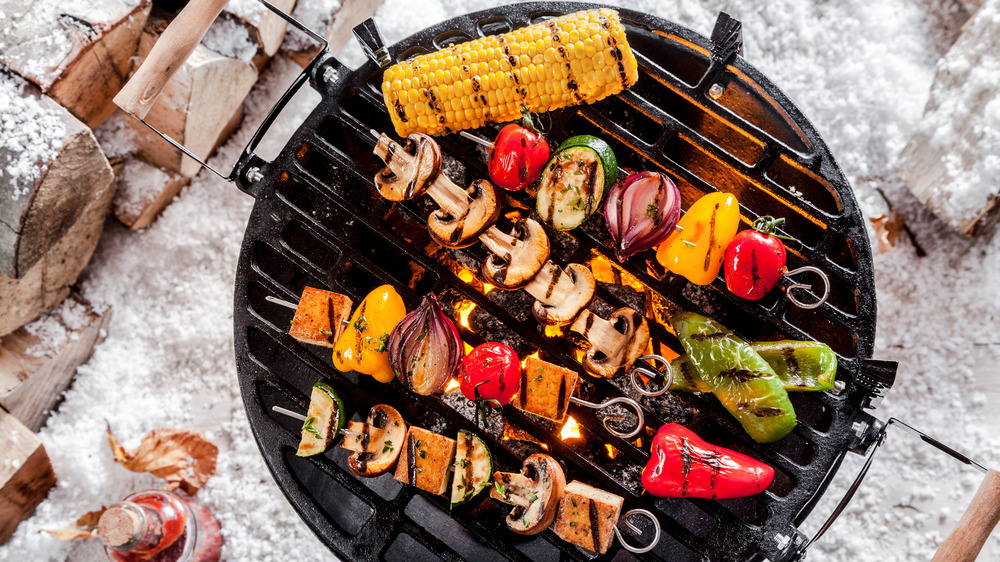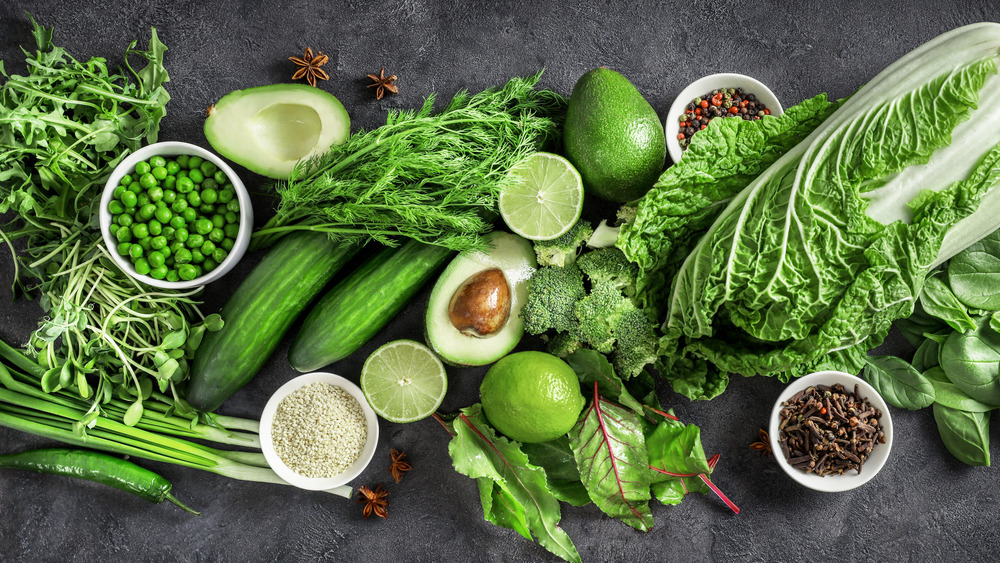What Vegans Should Know About Liquid Smoke
According to Healthline, "Veganism is currently defined as a way of living that attempts to exclude all forms of animal exploitation and cruelty, be it from food, clothing, or any other purpose." That said, let's be honest, if you want to follow a strictly vegan lifestyle, a lot of research is required. That might mean researching each company you make purchases from, paying extra-close attention to ingredient lists, and going the extra mile to opt for exclusively non-dairy options.
Now that we have a definition of what kind of diets vegans follow, let's talk about liquid smoke. If you're not familiar with it, liquid smoke is "a natural product made from condensing the smoke from burning wood," per The Spruce Eats. It's often used to add a barbecue-like taste to dishes, whether that flavor is hickory, mesquite, pecan, or another smoky variety. Since the primary ingredient used in making liquid smoke is, well, smoke, animal byproducts aren't typically added (via I Am Going Vegan).
Why liquid smoke isn't considered 'raw vegan'
Just being considered "vegan" doesn't check off all the boxes for every type of veganism; that said, liquid smoke is not considered "raw vegan." Confused? Let us explain.
A "raw vegan" diet is a little different from a traditional vegan diet. While it still excludes all animal-based foods and byproducts, there's another rule you might not know about.
To comply with a raw vegan diet, all foods are required to be consumed completely raw or heated at temperatures below 104–118 degrees Fahrenheit, according to Healthline. Naturally, for wood to ignite, it needs to be pretty darn hot. Like, 365-degrees-Fahrenheit hot, and that's just the minimum temperature needed (via Reference). Considering that's over three times as hot as the maximum limit of heat that raw veganism allows, liquid smoke is not raw-vegan compliant. (Speaking of raw foods — be careful; there are some things you should never eat raw).

